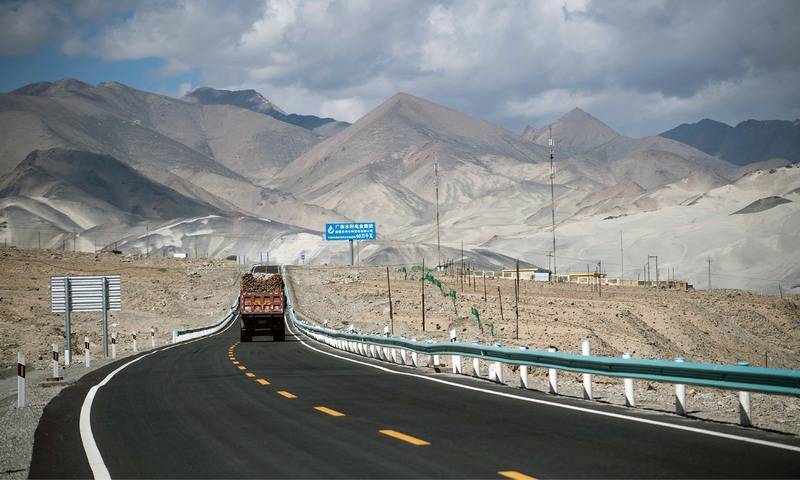Whilst the aggregate economy suffers due to twin deficits; fiscal and current account, emanating from myopic policy approaches, the political debate over health of the economy, triggered by General Qamar Javed Bajwa’s speech at a business forum in Karachi, has yet to conclude purposefully. Opposition parties, too, have not lagged behind in unabated criticism on the state of the economy in their routine talks with media. Reservations on the state of the economy vary considerably across concerned stakeholders.
One class of independent economists call for urgent shifts in policies related to exports, imports, and the investment (or FDI) environment, the other one calls for independence of State Bank, SECP and FBR on urgent and perpetual basis. Academia, the general citizens and the opposition parties, more interestingly, credit incompetency, unprofessionalism and tilted policies of the government for the economic turmoil. But, despite fattening of the economic losses, the incumbent government, so far, feels comfortable with the ballooning twin deficits.
The government is comfortable because the foreign exchange reserves are at all-time highs, economy is expanding at unprecedented pace, the investment environment is conducive and that the early harvest projects initiated under CPEC are literally producing desired outcome. The government is confident because the skyrocketing imports bills are impermanent and will soon translate into higher economic growth.
What is the problem with economy? Where does the solution lie? What we need to do as patriotic citizens? Why every stakeholder holds different views and opinions about the state of the economy? These queries of immense significance can be translated and answered in one sentence; “The Need for Shared Convergence”.
The opinions of every stakeholder cannot be, without any doubts and skepticism, disputed nor can they be disagreed with. The need for shared convergence requires and demands, more specifically, each stakeholder to be on one page and ensure the true spirits of Unity, Faith and Discipline. This is because unequal distribution of wealth and non-inclusiveness has disunited the general denizens and every related stakeholder in their views on the state of the economy, thereby leading to distrust, indiscipline and unrequired criticism.
Tilted government policies, on the other end, related to initiation of multiple projects under different schemes have led Pakistan toward non-inclusive economic growth, currently standing at 5.28. The non-inclusive growth has liability which it has to pay in future. For instance, it grows the richer class at the expense of poor which subsequently translates into more poverty, social, political as well as ideological polarization, loss of public trust, political stalemate, policies’ incoherence, besides unsustainable economic growth.
The adverse economic repercussions of non-inclusive growth results in lower productivity, misuse of valuable human resources, below par economic performance, and limiting policy makers’ capabilities and abilities in the long run to sustain higher growth. Misdiagnosis of the economy has rushed policy makers to employ temporary tools which have proved counterproductive and ineffective over the years.
The panacea for long term higher economic growth, surplus twin deficits and easing other economic woes is, “The Need for Shared Convergence”. Change will not happen unless social and political classes get on one page against the widening twin deficits and the other economic woes the country is currently facing. Masses and the political leaders need to trust each other and should be one when it comes to overhauling the besieged economy. Any dormancy, undoubtedly, will encourage and fuel social, political, ideological and economical alienation and polarization.
The gravity and relevance of shared convergence should not be discounted. The shared convergence can be ensured only through reducing power distance and direct social and political interactions. To restore public confidence and trust, the government needs to ensure transparency, political will, ensure sustained commitments and consensus-on-hand to reduce the prevalent social and political divide.
Encouraging opinions from business, academia, industry, political pundits and independent economists is what is needed right now. The individual political differences will yield only unwanted outcome in the medium to long term for the highly indebted economy which have to be borne by us collectively. To ensure inclusive growth the foundations of the economy should be cemented. For this to prevail, direct academia-industry engagement is of utmost significance and should be encouraged by the state.
The higher non-inclusive economic growth in the past had proved detrimental for the economy and the society. The non-inclusive growth and least shared convergence on economic issues have led the economy to social disorder, income inequality and misuse of the available human resource.
So far the speech of military’s chief is concerned, isn’t he a resident of Pakistan? If he is demanded or, stated otherwise, advised to avoid discussing economic affairs of the country, the ministers holding different portfolios, except ministry of finance, as well as general citizens too should be barred from discourse on economic affairs because the economic affairs of the country does not fall under their power.
Every citizen living in this country has been bestowed upon with the rights to opine on literally every issue related to the country, in general, and the economic affairs, in particular, in a fair and constructive way because this is what democracy preaches and this is what, despite missing sorely, is exactly what is needed today.






